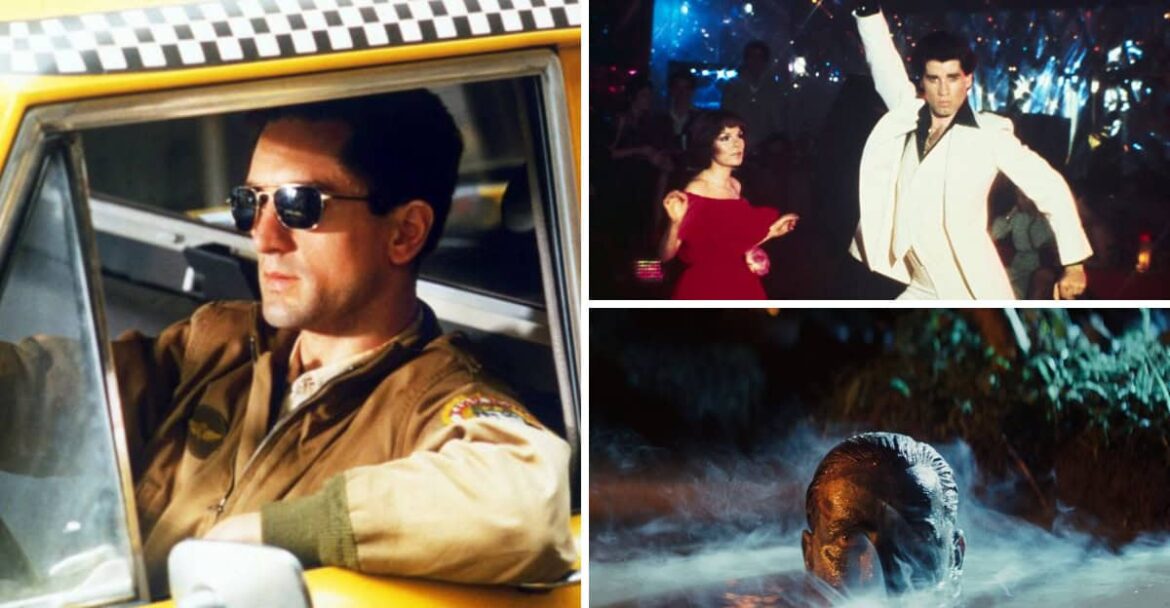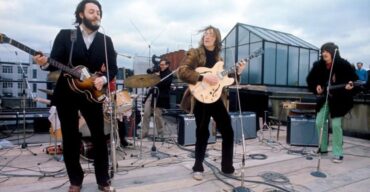The 1970s was a decade of artistic experimentation, cultural shifts, and groundbreaking cinematic achievements. From the gritty streets of New York City to the psychedelic vibes of California, filmmakers of this era explored themes that resonate even today. Whether you’re a fan of classic cinema or curious about the decade’s eclectic spirit, these 13 films offer a fascinating glimpse into the soul of the ’70s.
1. Taxi Driver (1976)
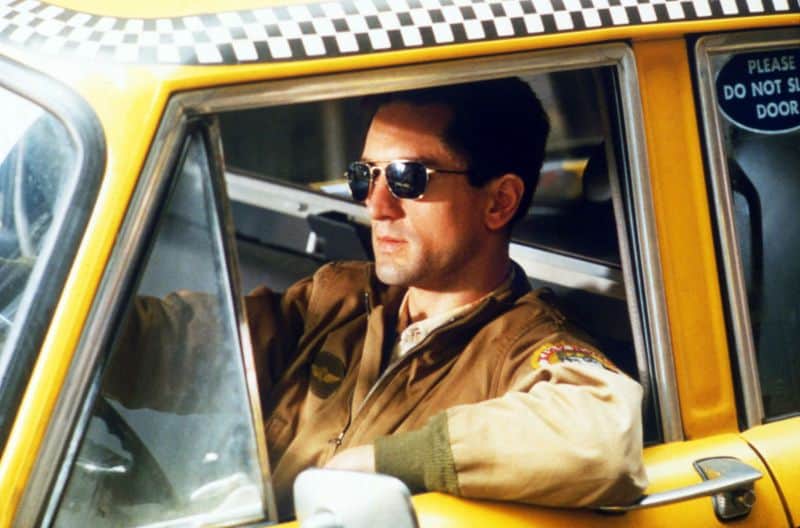
“Taxi Driver” stars Robert De Niro as Travis Bickle, a mentally unstable veteran who becomes a cab driver in New York City. The film’s portrayal of urban decay and isolation captures the era’s darker side. Set against a backdrop of crime and moral ambiguity, Bickle’s descent into madness reflects the societal tensions of the time.
Director Martin Scorsese used the city as a character itself, depicting it with raw, gritty realism. The film’s cinematography, with its moody lighting and haunting score by Bernard Herrmann, adds to the intense atmosphere.
The character’s iconic line, “You talkin’ to me?” became emblematic of the film’s impact. As Bickle spirals further, “Taxi Driver” explores themes of loneliness and desperation, which resonated deeply in the post-Vietnam War era. This film remains a cornerstone of ’70s cinema, embodying the complex emotions of the time.
2. Rocky Horror Picture Show (1975)
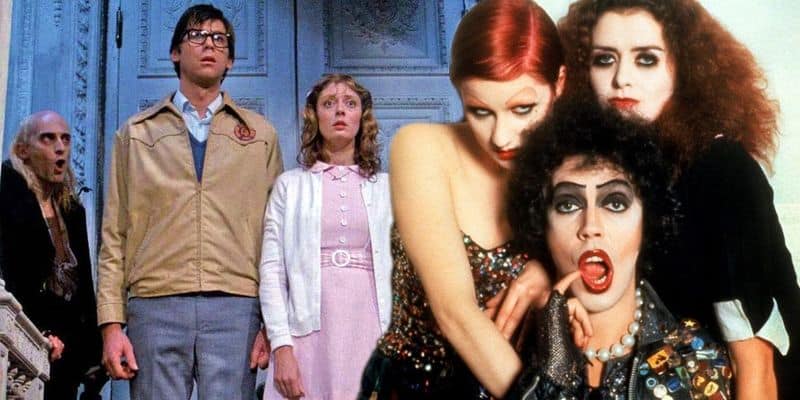
“Rocky Horror Picture Show” is an iconic musical that epitomizes the era’s embrace of counterculture and eccentricity. Tim Curry’s portrayal of Dr. Frank-N-Furter, a flamboyant, gender-bending scientist, challenged norms and delighted audiences.
The film’s campy style and outlandish plot reflect the ’70s spirit of rebellion and experimentation. From its catchy musical numbers to its cult following and audience participation, it captured a cultural movement.
With its blend of horror, comedy, and rock music, “Rocky Horror” became a staple of midnight showings, encouraging viewers to express themselves freely. The film’s legacy endures, symbolizing the decade’s openness to exploring identity and sexuality in a vibrant, theatrical way. Its influence continues to inspire new generations to embrace their uniqueness through its unapologetically bold narrative.
3. Apocalypse Now (1979)
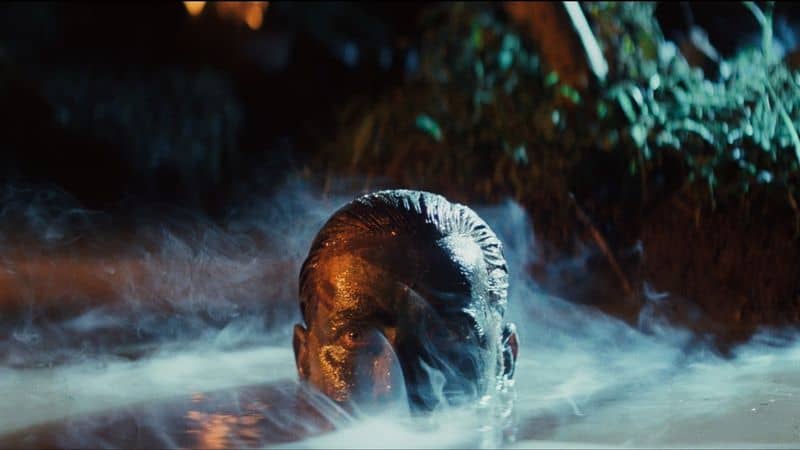
“Apocalypse Now” is a powerful film that delves into the horrors of the Vietnam War. Directed by Francis Ford Coppola, it features Marlon Brando as the enigmatic Colonel Kurtz. The movie’s intense portrayal of war’s madness and chaos reflects the anti-war sentiment of the ’70s.
Set in the dense jungles of Vietnam, the film’s surreal and haunting visuals create a gripping atmosphere. The journey of Captain Willard, played by Martin Sheen, into the heart of darkness is both literal and metaphorical.
The film examines themes of imperialism, morality, and the human psyche, making it a profound cinematic experience. Its iconic scenes, including the Ride of the Valkyries helicopter sequence, have left an indelible mark on film history. “Apocalypse Now” remains a significant exploration of the decade’s socio-political landscape, resonating as a testament to the era’s turmoil.
4. Star Wars: A New Hope (1977)
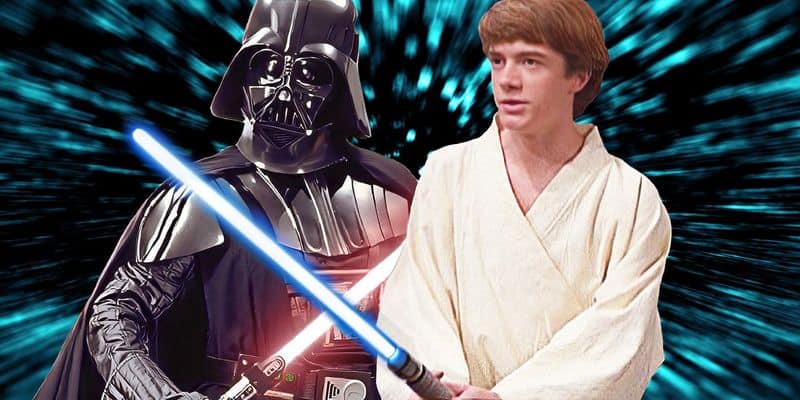
“Star Wars: A New Hope” brought a transformative change to cinema in the late ’70s. George Lucas’ epic space opera introduced audiences to a galaxy far, far away, combining groundbreaking special effects with timeless storytelling.
With a cast led by Mark Hamill, Harrison Ford, and Carrie Fisher, the film became a cultural phenomenon. Its blend of adventure, science fiction, and myth resonated with audiences, sparking a new era of blockbuster films.
The film’s innovative use of visual effects and its iconic score by John Williams set new standards for cinema. “Star Wars” embodied the optimism and imagination of the time, inspiring generations with its themes of heroism, friendship, and the battle between good and evil. It encapsulates the decade’s spirit of innovation and creativity, leaving a lasting legacy in both popular culture and the film industry.
5. Jaws (1975)

“Jaws” directed by Steven Spielberg, redefined the thriller genre and became a defining film of the ’70s. The movie’s suspenseful storytelling and groundbreaking use of animatronics created a new standard for cinematic thrills.
Set in the idyllic Amity Island, the story follows Chief Brody, played by Roy Scheider, as he confronts a monstrous great white shark. The film’s iconic theme by John Williams added to the tension, becoming synonymous with fear itself.
“Jaws” not only captivated audiences but also changed the way movies were marketed, ushering in the concept of the summer blockbuster. Its impact on filmmaking and popular culture was profound, reflecting the era’s innovation and fascination with the unknown. The film’s legacy endures, reminding viewers of the primal fear of nature’s unpredictability and the power of storytelling in cinema.
6. A Clockwork Orange (1971)
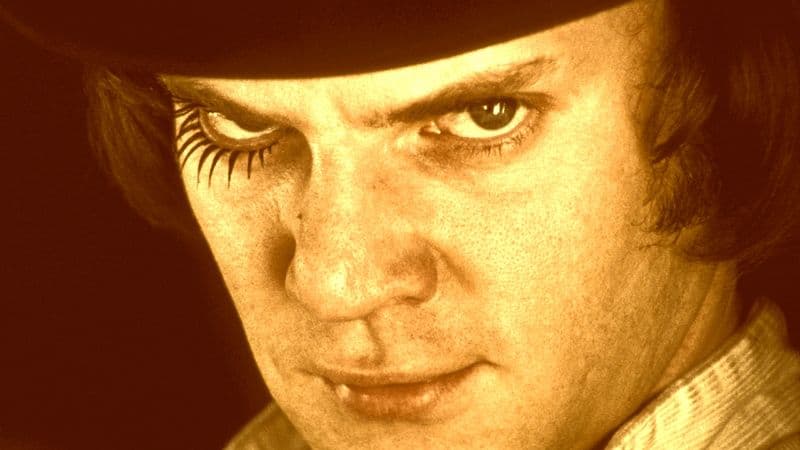
Stanley Kubrick’s “A Clockwork Orange” is a controversial yet influential film from the ’70s. The movie explores themes of free will, violence, and societal control through the eyes of its anti-hero, Alex, portrayed by Malcolm McDowell.
Set in a dystopian future, the film’s striking visual style and unsettling narrative challenged audiences and provoked thought. Its use of classical music juxtaposed with scenes of brutality left a lasting impression.
Kubrick’s adaptation of Anthony Burgess’s novel sparked debates on morality and the nature of evil. The film’s depiction of a world where individuality clashes with authoritarian control resonated with the decade’s countercultural movements. “A Clockwork Orange” remains a provocative piece of cinema, reflecting the era’s willingness to explore complex, often uncomfortable themes in search of understanding.
7. Saturday Night Fever (1977)
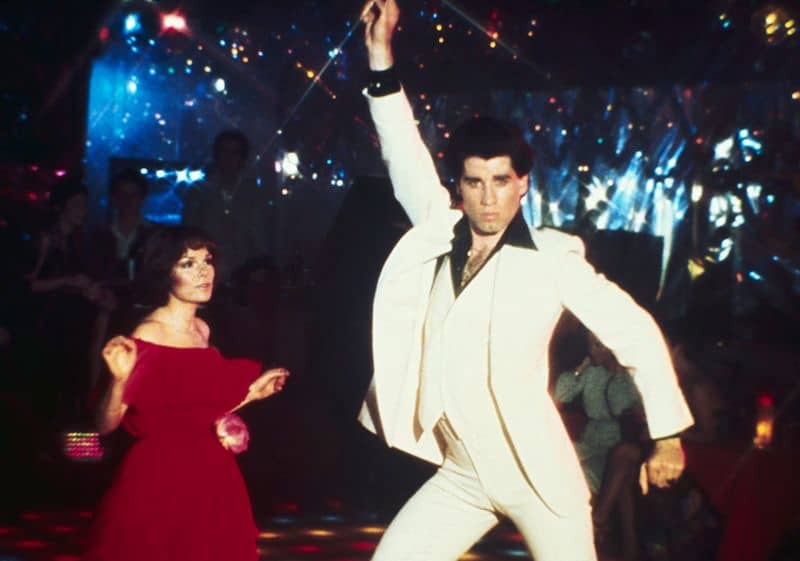
“Saturday Night Fever” captured the disco craze of the late ’70s and became a cultural touchstone. John Travolta’s portrayal of Tony Manero, a Brooklyn youth with dreams of dancing stardom, resonated with audiences worldwide.
The film showcased the vibrant nightlife and music of the era, with a soundtrack featuring the Bee Gees’ iconic hits. Its dance sequences and fashion styles became emblematic of the time, influencing trends and entertainment.
Beyond its energetic surface, the movie also explored themes of aspiration and identity, reflecting the decade’s social dynamics. “Saturday Night Fever” remains a beloved classic, celebrated for both its catchy beats and its deeper narrative. It encapsulates the spirit of the ’70s, a time of self-expression and change, inspiring a generation to dance to their own rhythm.
8. The Godfather (1972)
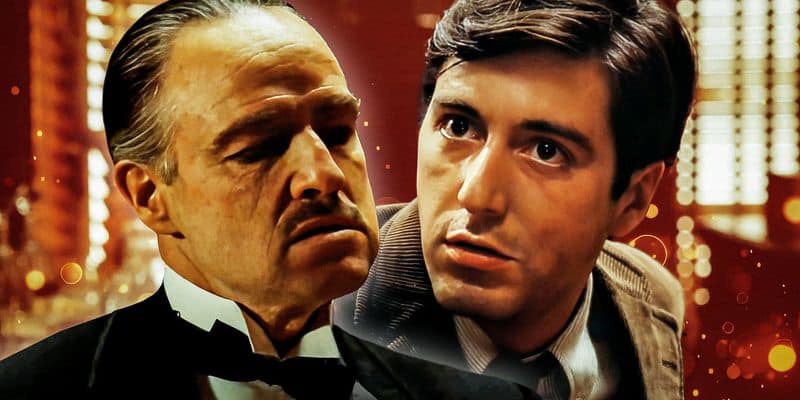
“The Godfather,” directed by Francis Ford Coppola, is often hailed as one of the greatest films of all time. Released in the early ’70s, it offers a profound look into the world of organized crime through the Corleone family.
Marlon Brando’s portrayal of Vito Corleone and Al Pacino’s transformation as Michael Corleone are central to the film’s enduring legacy. Its exploration of power, loyalty, and family dynamics resonated with audiences, reflecting broader societal themes.
The film’s masterful storytelling and evocative visuals set a new standard for cinematic excellence. “The Godfather” transcends its crime genre roots, becoming a timeless exploration of human nature and ambition. Its impact is pervasive, influencing not just films, but also popular culture, capturing the essence of the ’70s with its depth and complexity.
9. One Flew Over the Cuckoo’s Nest (1975)
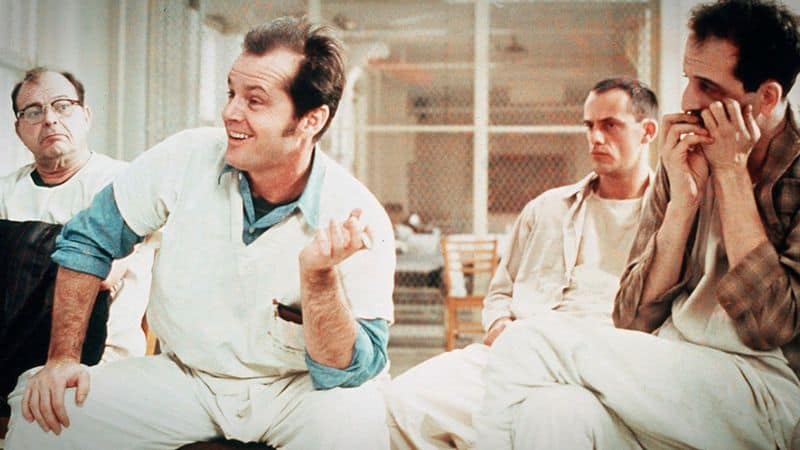
“One Flew Over the Cuckoo’s Nest” is a poignant film that critiques institutional power and conformity. Starring Jack Nicholson as the rebellious R.P. McMurphy, it portrays life inside a mental institution and the struggle for individuality.
McMurphy’s defiance against the oppressive Nurse Ratched becomes a symbol of resistance. The film’s exploration of freedom and control resonates with the ’70s countercultural movements.
Its engaging narrative and unforgettable performances won critical acclaim, earning five major Academy Awards. The movie’s impact lies in its ability to humanize mental illness and question societal norms, reflecting the era’s spirit of challenging authority. “One Flew Over the Cuckoo’s Nest” endures as a powerful reminder of the importance of compassion and the fight for personal autonomy.
10. Blazing Saddles (1974)
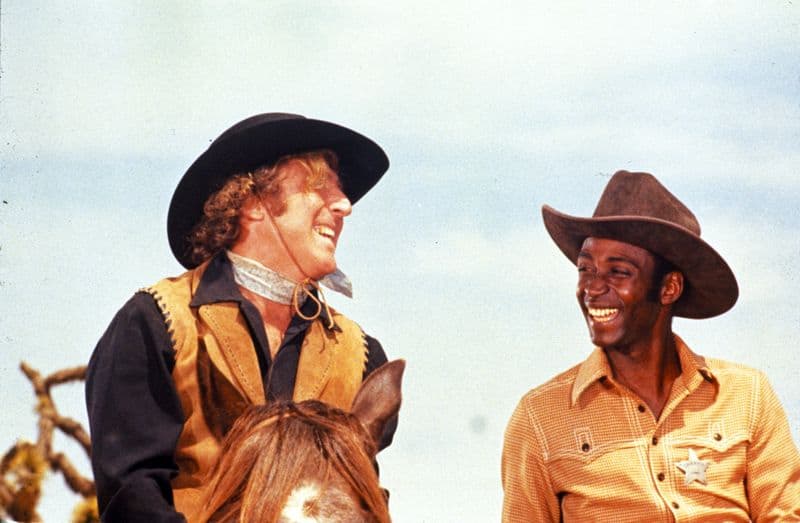
“Blazing Saddles,” directed by Mel Brooks, is a satirical comedy that broke new ground in the ’70s. The film parodies Western tropes while addressing racial stereotypes and social issues with humor and wit.
Starring Cleavon Little as Sheriff Bart and Gene Wilder as the Waco Kid, the movie blends slapstick comedy with sharp social commentary. Its irreverent style and memorable one-liners made it a classic of the genre.
“Blazing Saddles” challenged conventions, reflecting the decade’s shifting attitudes towards race and equality. Brooks’ fearless approach to comedy allowed audiences to laugh while contemplating deeper themes. The film’s legacy continues, inspiring comedians and filmmakers to push boundaries in storytelling. Its unique blend of humor and insight captures the spirit of the ’70s, a time when films began to question and redefine cultural norms.
11. Alien (1979)
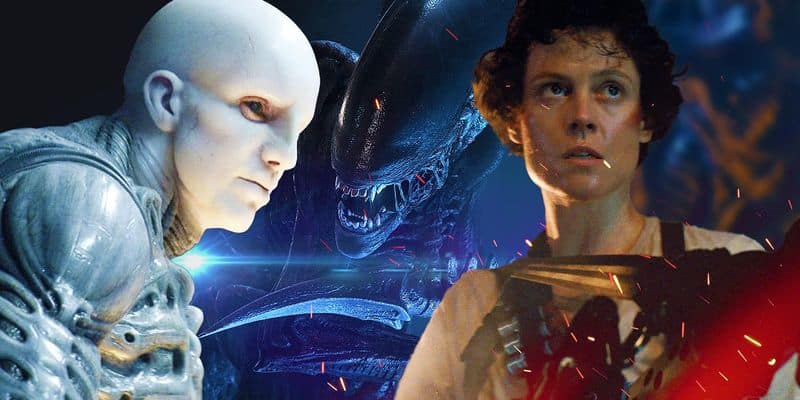
“Alien,” directed by Ridley Scott, is a pioneering science fiction horror film that emerged in the late ’70s. Starring Sigourney Weaver as Ripley, the movie redefined the genre with its blend of suspense, horror, and sci-fi elements.
Set aboard the commercial spaceship Nostromo, the crew encounters a deadly extraterrestrial creature, leading to terrifying consequences. The film’s claustrophobic setting and atmospheric tension created a unique cinematic experience.
“Alien” challenged traditional gender roles by featuring a strong female protagonist, reflecting the era’s evolving views on gender equality. Its innovative visual effects and haunting score set a new benchmark for filmmaking. The movie’s success spawned a franchise and solidified its place in cinematic history, capturing the decade’s fascination with space exploration and the unknown, while exploring themes of survival and human resilience.
12. Monty Python and the Holy Grail (1975)
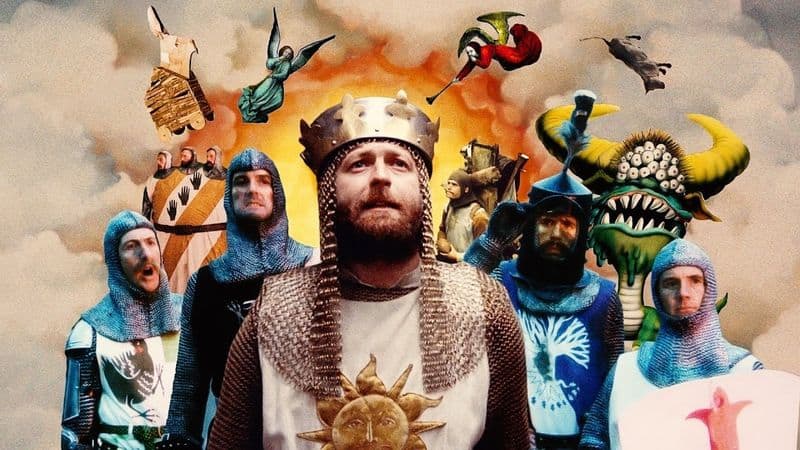
“Monty Python and the Holy Grail” is an absurd, comedic take on the legendary quest for the Holy Grail. Released in the mid-’70s, it became a cult classic with its uniquely British humor and inventive storytelling.
The film’s ensemble cast, including John Cleese and Graham Chapman, brought the absurdity to life with their impeccable comedic timing. Its low-budget charm and clever satire of medieval tropes elevated it to iconic status.
“Holy Grail” resonated with audiences for its irreverence and creativity, embodying the decade’s embrace of unconventional and experimental art forms. The film’s influence is seen in countless parodies and references, making it a touchstone of comedy. Its playful approach to storytelling captures the whimsical side of the ’70s, inviting viewers to laugh while pondering the absurdities of life and history.
13. Grease (1978)
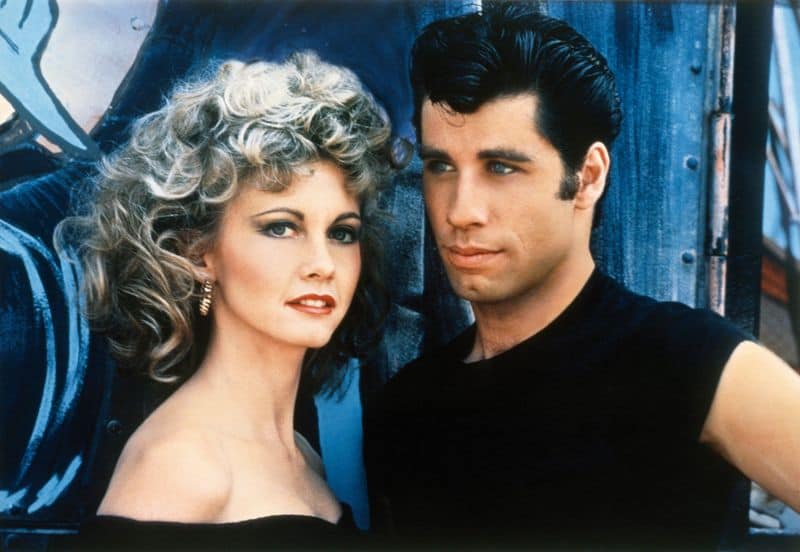
“Grease” is a nostalgic musical set in the 1950s, yet it perfectly captured the spirit of the ’70s with its vibrant energy and romantic escapism. Starring John Travolta and Olivia Newton-John, it became a beloved classic for its catchy tunes and charming performances.
The film’s portrayal of teenage love, rebellion, and friendship resonated with audiences, reflecting the decade’s longing for simpler times. Its colorful costumes and upbeat dance numbers made it a visual delight.
“Grease” celebrated youth culture and the joy of music, becoming a cultural phenomenon that transcended generations. Its popularity endures, with its themes of love and self-discovery remaining relevant. The film embodies the ’70s ethos of fun and freedom, inviting viewers to relive the magic of high school days and sing along to its unforgettable soundtrack.
